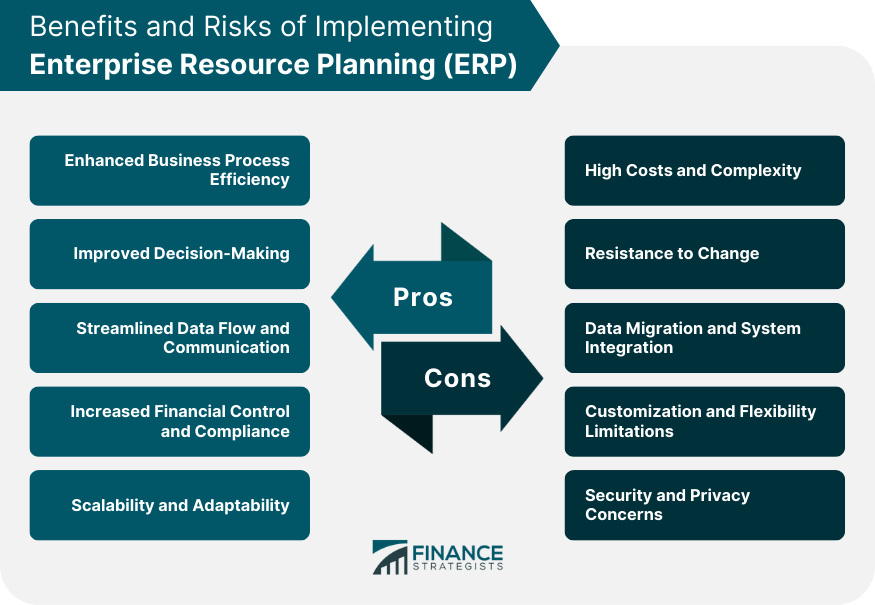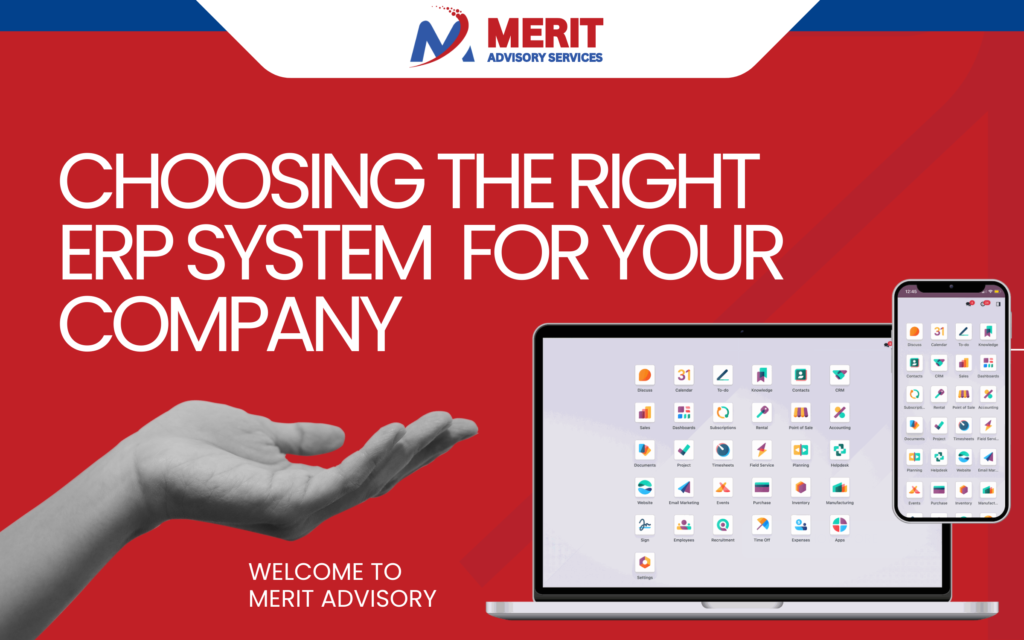Table of Contents
- Introduction
- What is ERP Software?
- The Benefits of ERP Solutions
- Choosing the Right ERP System for Your Business
- Exploring Cloud ERP for Increased Efficiency
- Streamlining Your Business Processes through Integrated Business Software
- Navigating ERP Implementation: Tips for a Smooth Transition
- Boosting Human Resources Management with ERP
- Enhancing Customer Relationships with CRM Integration
- Mastering Supply Chain Management with ERP
- Streamlining Inventory Management with ERP Software
- Leveraging Business Process Automation for Efficiency Gains
- Conclusion
Introduction
In today’s fast-paced and highly competitive business landscape, staying organized and efficient is key to success. As your business grows, managing various aspects such as operations, inventory, finances, and customer relationships can become overwhelming. This is where ERP software solutions come into play. By seamlessly integrating all your business processes into a single system, ERP software enables you to streamline operations, optimize efficiency, and drive growth. In this blog post, we will explore the power of ERP software solutions and how they can revolutionize your business. So, grab a cup of coffee and let’s dive in!
What is ERP Software?
Before we delve deeper into the benefits of ERP solutions, let’s first understand what ERP software is. ERP, or Enterprise Resource Planning, refers to a comprehensive suite of integrated business applications designed to manage and automate various core functions and processes within an organization. These functions may include finance, human resources, supply chain, customer relationship management, manufacturing, and more. ERP software acts as a central hub, allowing seamless communication and data flow between different departments and systems, resulting in increased efficiency, improved decision-making, and enhanced customer satisfaction.

The Benefits of ERP Solutions
Implementing ERP software can bring a multitude of benefits to your business. Let’s take a closer look at some of the key advantages:
1. Increased Efficiency and Productivity
With ERP software, you can eliminate repetitive and manual tasks by automating processes and workflows. This ensures that your employees can focus on more strategic and value-added activities, leading to increased productivity and efficiency across the organization.
2. Enhanced Data Visibility and Accuracy
ERP solutions provide real-time and centralized access to critical business data. This enables swift decision-making based on accurate and up-to-date information, improving overall operational visibility and reducing the risk of errors caused by siloed systems or outdated data.
3. Seamless Collaboration and Communication
By breaking down departmental barriers, ERP software fosters seamless collaboration and communication between different teams and stakeholders within your organization. This enables better coordination, teamwork, and knowledge sharing, ultimately driving innovation and growth.
4. Scalability and Flexibility
As your business expands, ERP software can easily scale alongside your growth. Whether you need to add new modules, accommodate additional users, or integrate with other software, ERP solutions offer the flexibility to adapt to your evolving needs without disrupting your operations.
5. Competitive Advantage
Implementing ERP software provides your business with a competitive edge. By streamlining operations, reducing costs, and optimizing resource utilization, you can deliver better products and services to your customers, creating a distinct advantage in the marketplace.

Choosing the Right ERP System for Your Business
When it comes to choosing the right ERP system for your business, it’s crucial to consider several factors. Here are some key points to keep in mind:
1. Define Your Business Requirements
Start by identifying your business’s specific needs and pain points. Are you looking to automate financial processes, manage inventory, improve customer service, or enhance manufacturing efficiency? Understanding your requirements will help you narrow down the options and choose an ERP system that aligns with your goals.
2. Evaluate Industry-specific Solutions
Different industries have unique requirements and regulations. Look for ERP software that caters to your specific industry, as it will likely offer tailored functionalities and compliance features that can drive maximum benefit for your business.
3. Consider Scalability and Integration Capabilities
As your business grows, your ERP system should be able to support your expansion seamlessly. Ensure the software allows for scalability and offers integration capabilities with other essential business applications such as CRM, e-commerce platforms, or inventory management software.
4. User-friendly Interface and Training Support
Your ERP system should be easy to use and understand for your employees. Look for software that offers a user-friendly interface and provides robust training and support resources to ensure your team can quickly adapt to the new system.
5. Vendor Reputation and Support
Choose an ERP software vendor with a solid reputation and a track record of providing excellent customer support. A reliable vendor will offer ongoing assistance, software updates, and be responsive to your concerns or issues.

Exploring Cloud ERP for Increased Efficiency
Cloud ERP has gained significant popularity in recent years, offering businesses a flexible and cost-effective alternative to traditional on-premise ERP systems. Here are some key benefits of adopting a cloud ERP solution:
1. Accessibility and Remote Collaboration
With cloud ERP, your data is stored securely in the cloud, allowing authorized users to access it anytime, anywhere. This enables remote collaboration, empowering your employees to work from different locations or even outside regular business hours.
2. Cost Savings and Scalability
Cloud ERP eliminates the need for upfront hardware and infrastructure investments, reducing your IT expenses significantly. Additionally, you can scale your cloud ERP solution as your business grows, paying only for the resources you use, and avoiding unnecessary costs associated with maintaining on-premise servers.
3. Enhanced Security and Data Protection
Cloud ERP providers invest heavily in robust security measures, ensuring your data is protected against cyber threats. They employ advanced encryption techniques, regular backups, and disaster recovery plans to safeguard your sensitive business information.
4. Automatic Updates and Maintenance
With cloud ERP, updates and maintenance tasks are taken care of by the provider, allowing you to focus on your core business operations. This ensures that you always have access to the latest software features and security patches without the hassle of manual updates.

Streamlining Your Business Processes through Integrated Business Software
Integrating various business applications and systems can unlock significant efficiency gains, as it eliminates data silos and enables seamless information flow. Let’s explore how ERP software facilitates integrated business software solutions:
1. Finance and Accounting Integration
By integrating your ERP system with financial management software, you can streamline financial processes such as accounts payable, accounts receivable, general ledger, and financial reporting. This provides real-time visibility into your financial data, enabling you to make accurate and data-driven financial decisions.
2. Human Resources Management Integration
Integrating your ERP software with a human resources management system (HRMS) allows you to centralize employee data, automate payroll processes, manage benefits, and track performance. This integration eliminates manual data entry and reduces errors associated with duplicate or outdated employee information.
3. Customer Relationship Management (CRM) Integration
CRM integration with ERP software enables a comprehensive view of your customer interactions, sales pipeline, marketing campaigns, and customer support history. This empowers your sales and customer service teams with accurate and timely information, fostering better customer relationships and driving customer satisfaction.
4. Supply Chain Management Integration
Integrating your ERP system with a supply chain management solution optimizes your procurement, inventory management, demand planning, and order fulfillment processes. This integration improves supply chain visibility, reduces stockouts, enhances order accuracy, and helps you meet customer demands efficiently.
5. Business Intelligence and Analytics Integration
By integrating your ERP software with business intelligence and analytics tools, you can gain valuable insights into your business performance, trends, and forecasting. This enables data-driven decision-making and empowers you to identify areas for improvement, uncover new opportunities, and drive strategic growth.
Navigating ERP Implementation: Tips for a Smooth Transition
Implementing an ERP system can be a complex and challenging process. To ensure a smooth transition, follow these best practices:
1. Define Clear Goals and Milestones
Set clear and realistic goals for your ERP implementation project. Break the project into manageable milestones and timelines to keep track of progress and ensure everyone involved is aligned with the objectives.
2. Get Buy-in from Key Stakeholders
Involve key stakeholders from different departments in the decision-making process. Ensure they understand the benefits of ERP implementation and address their concerns or questions to gain their buy-in and support.
3. Plan for Change Management
ERP implementation often brings significant changes to processes and workflows. Develop a change management plan that includes regular communication, training, and support to help your employees adapt to the new system seamlessly.
4. Data Cleansing and Migration
Before implementing ERP software, ensure your data is clean, accurate, and properly organized. Invest time and effort in data cleansing and migration to avoid inconsistencies or errors that can hinder the effectiveness of the new system.
5. Test and Train
Perform thorough testing of the ERP system before the go-live date to identify and address any issues or bugs. Conduct comprehensive training sessions to train your employees on the new system’s functionalities, ensuring they can confidently navigate and make the most of the ERP software.
Boosting Human Resources Management with ERP
Human resources management is a critical aspect of running a successful business. ERP software can bring significant improvements and efficiencies in managing HR processes. Let’s explore how:
1. Employee Data Centralization
ERP software allows for centralized employee data storage, eliminating the need for multiple systems or spreadsheets. This ensures accurate and up-to-date employee information, making it easier to manage employee records, track performance, and automate HR processes.
2. Streamlined Recruitment and Onboarding Processes
With ERP software, you can automate and streamline your recruitment and onboarding processes. From posting job openings to managing applications and conducting background checks, ERP solutions enable you to efficiently manage the entire employee lifecycle, saving time and reducing administrative burden.
3. Enhanced Payroll and Benefits Administration
By integrating your ERP system with payroll and benefits administration software, you can automate payroll calculations, tax withholdings, and benefits enrollment. This reduces manual errors, ensures compliance with employment regulations, and improves overall payroll efficiency.
4. Performance Management and Training
ERP software facilitates performance management by providing a centralized platform to set performance goals, conduct performance reviews, and track employee development plans. This enables fair and consistent evaluation, identifies skill gaps, and supports strategic workforce planning.
5. Employee Self-Service Portal
An ERP system with an employee self-service portal empowers your workforce by allowing them to access and update their personal information, view pay stubs, request time off, and enroll in training programs. This self-service functionality improves employee satisfaction, reduces HR administrative tasks, and encourages employee engagement.

Enhancing Customer Relationships with CRM Integration
Customer relationship management (CRM) integration with ERP software is essential for businesses to effectively manage their customer interactions and enhance customer satisfaction. Let’s explore the benefits of CRM integration:
1. Single Source of Customer Data
Integrating your CRM solution with ERP software ensures a single source of customer data. This eliminates data duplication and inconsistencies, resulting in accurate and up-to-date customer information across different departments. Your sales, marketing, and customer service teams can have a comprehensive view of customer interactions and history, enabling personalized and targeted customer engagement.
2. Sales Pipeline Management
CRM integration enables seamless synchronization of sales data between your CRM and ERP systems. This allows for real-time visibility into sales pipelines, customer orders, and inventory availability. Your sales team can access the latest information, track opportunities, and close deals more efficiently.
3. Customer Service and Support
With CRM integration, your customer service team can access relevant customer information from within the ERP system. This enables faster and more personalized customer support, as agents have access to order history, previous interactions, and customer preferences. Resolving customer issues quickly and accurately enhances customer satisfaction and loyalty.
4. Targeted Marketing Campaigns
Integrating your CRM with ERP software helps you create targeted marketing campaigns based on customer behavior, purchase history, and preferences. You can segment your customer database, personalize marketing messages, and track campaign performance, ensuring maximum return on investment.
5. Improved Customer Satisfaction and Retention
By leveraging CRM integration, you can enhance the overall customer experience. Accurate and timely information, coupled with personalized interactions and streamlined processes, leads to improved customer satisfaction. Satisfied customers are more likely to become loyal advocates for your brand, leading to increased customer retention and revenue growth.
Mastering Supply Chain Management with ERP
Supply chain management is a critical component of any business and plays a crucial role in meeting customer demands while optimizing costs. ERP software can significantly streamline and enhance your supply chain management processes. Let’s take a closer look:
1. Procurement and Supplier Management
Integrating your ERP system with procurement and supplier management software enables seamless management of procurement processes, such as purchase orders, supplier evaluation, and invoice reconciliation. This integration improves procurement efficiency, reduces manual errors, and ensures timely delivery of goods and services.
2. Inventory Management and Optimization
ERP software empowers you to efficiently manage your inventory throughout the supply chain. From tracking stock levels to generating purchase orders and managing warehouse operations, ERP solutions provide real-time visibility into your inventory. This visibility helps you optimize stock levels, reduce carrying costs, minimize stockouts, and improve order fulfillment.
3. Demand Planning and Forecasting
By integrating your ERP system with demand planning and forecasting tools, you can accurately predict customer demand, optimize inventory levels, and plan production accordingly. This integration ensures that you meet customer demands efficiently, avoid overstocking or stockouts, and reduce waste.
4. Logistics and Transportation Management
ERP software enables you to streamline logistics and transportation management by automating workflows, optimizing route planning, and tracking shipments. Integration with external logistics partners, such as shipping carriers or customs brokers, further enhances the efficiency and visibility of your supply chain.
5. Supplier Collaboration and Performance Monitoring
ERP systems facilitate seamless collaboration and communication with suppliers. By integrating your ERP software with supplier portals, you can exchange procurement-related information, monitor supplier performance, and ensure compliance with agreed-upon service levels. This collaboration enhances relationships with suppliers, improves supply chain visibility, and drives overall performance.

Streamlining Inventory Management with ERP Software
Efficient inventory management is crucial for businesses to meet customer demands, prevent stockouts, and optimize holding costs. ERP software provides robust inventory management capabilities that enable streamlined operations. Let’s explore the benefits:
1. Real-Time Visibility
ERP software offers real-time visibility into your inventory. You can quickly access information such as stock levels, product details, and location, allowing you to make informed decisions regarding purchasing, production, and order fulfillment. Real-time visibility minimizes the risk of stockouts or overstocking, optimizing your inventory holding costs.
2. Barcode and RFID Integration
Integration with barcode or RFID technology enables efficient tracking and management of inventory across the supply chain. By scanning barcodes or using RFID tags, you can automate data capture, reduce manual errors, and improve inventory accuracy and traceability.
3. Demand-Driven Planning
With ERP software, you can implement demand-driven planning techniques to optimize your inventory levels. By analyzing demand patterns, sales forecasts, and lead times, you can ensure the right products are available at the right time, reducing excess inventory and improving customer satisfaction.
4. Multi-location Inventory Management
ERP systems support multi-location inventory management, allowing you to track inventory across multiple warehouses or retail outlets. This feature helps optimize stock allocation, minimize shipping costs, and streamline order fulfillment processes.
5. Integrated Order Management
Integrating your ERP system with order management software ensures seamless order processing and fulfillment. From order capture to invoicing, inventory allocation, and shipping, ERP software eliminates manual data entry, reduces errors, and accelerates order cycle times.

Leveraging Business Process Automation for Efficiency Gains
Business process automation (BPA) refers to the use of technology to automate repetitive and manual tasks, resulting in increased efficiency, reduced costs, and improved accuracy. ERP software plays a significant role in enabling BPA. Let’s explore its benefits:
1. Elimination of Manual Data Entry
Manual data entry is not only time-consuming but also prone to errors. ERP software automates data entry by integrating with various systems and applications, reducing the risk of mistakes caused by manual input. This automation saves time, improves data accuracy, and minimizes rework.
2. Workflow Automation
ERP systems enable workflow automation by defining rules and triggers for different processes and tasks. For example, purchase requisitions can be

















Pretty! This was a really wonderful post. Many thanks for supplying this info. https://Lvivforum.Pp.ua/